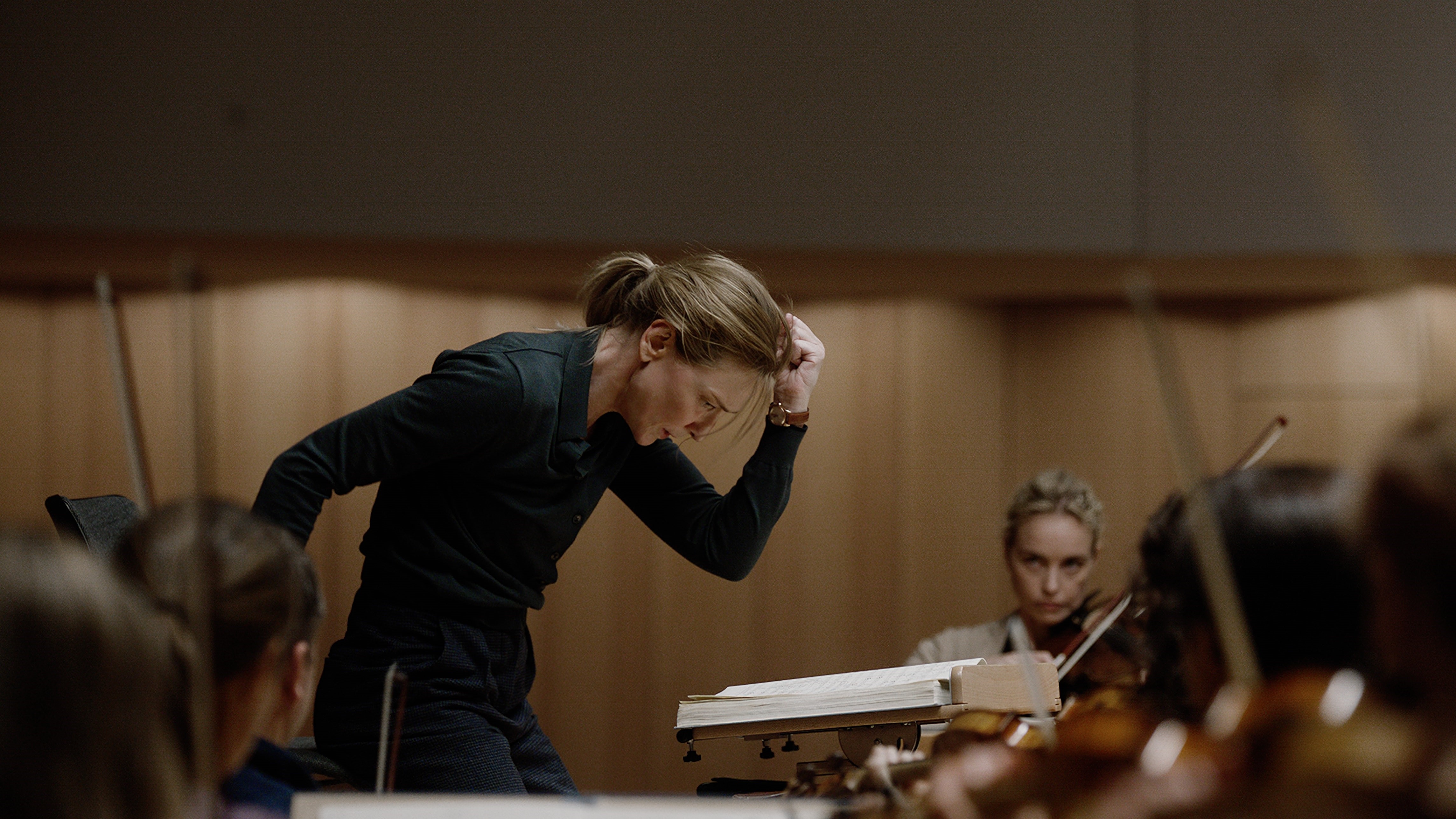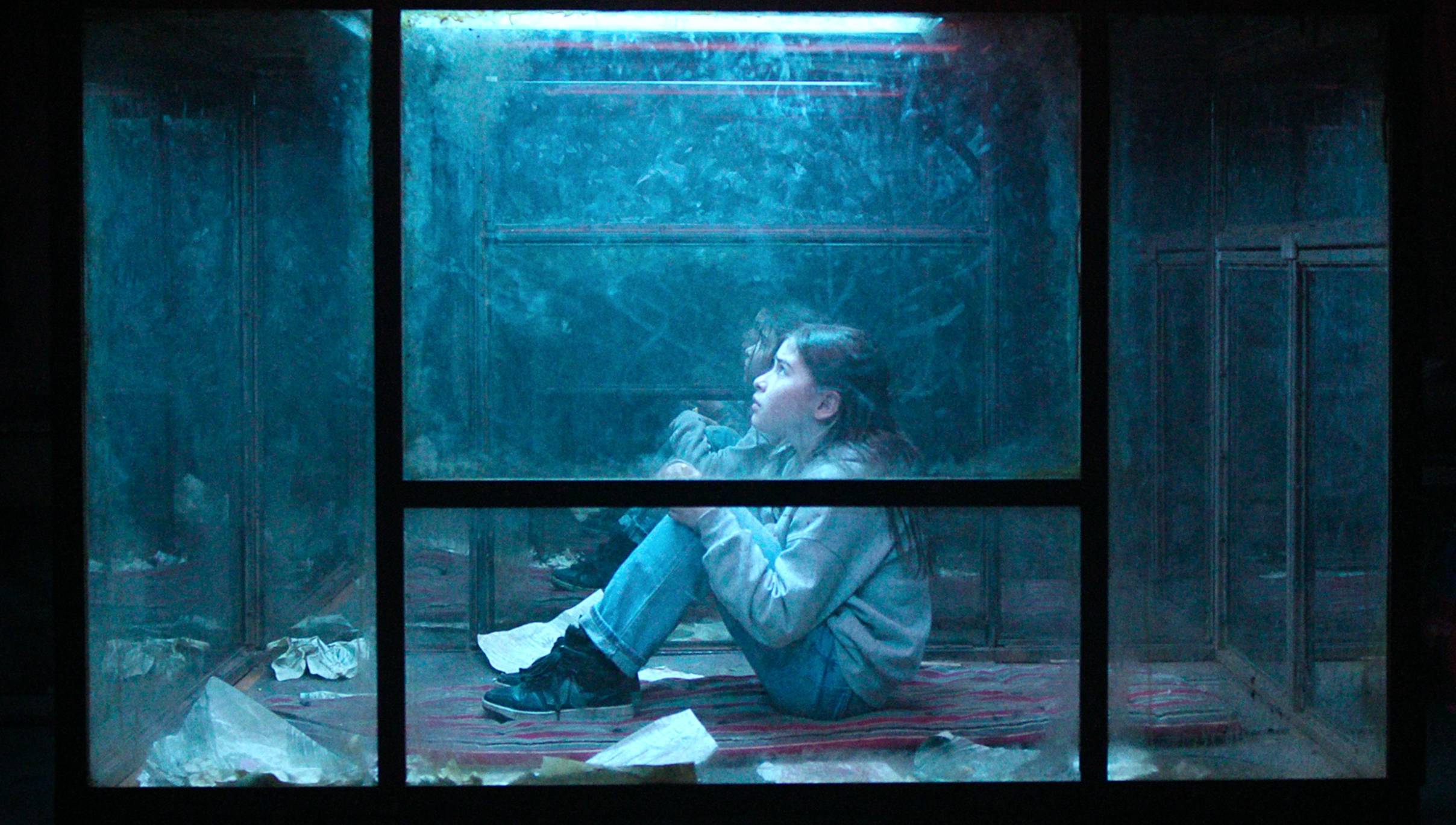What to Watch Verdict
TÁR proves you can be great at what you do and a terrible person the entire time you're doing it. Blanchett's intensely flawed character worth seeing through to the end.
Pros
- +
A top five performance of Cate Blanchett's career
- +
Bold statement about the price of living inauthentically
- +
Sharp modern backdrop heightens the focus on Blanchett's narrative
Cons
- -
Uneven development snaps the tension at the wrong time
- -
Larger narrative around Blanchett is underserved
- -
Too many missed opportunities with the narrative themes
- -
Stop using Black characters as props
Writer/director Todd Field’s first film in 16 years, TÁR, follows Lydia Tár (Cate Blanchett), the first-ever female music director of the Berlin Philharmonic. This award-winning virtuoso travels in rarified circles and has earned her spot with talent, hard work and a willing sublimation of self that enabled her to emulate the male maestros before her. Perhaps too precisely.
While she has championed women composers, conductors and players, it's only in service of her narrative. Even at home, living with violinist wife, Sharon (Nina Hoss), and with her faithful assistant Francesca (Noémie Merlant), Tár has surrounded herself with people whose sole purpose is meeting her needs. Her every move is calculated to present her in the best light, further her achievements and solidify her place in history.
But, with a few strategically placed shots of a FaceTime call with snide texts popping up early in the film’s opening act, it's clear that although she’s respected for her varied achievements, Tár is far from universally loved. Her image shows exactly — and only — what Tár wants the world to see. Her brand is strong but, contrary to appearances, the walls she’s built aren’t impenetrable.
By the midway point, the carelessness with which she treats the people around her is on full display. But so is her delight and love of the work. Both easily misconstrued by outside observers. Even when she’s being passionate about the craft, her tactics make rooting against her easy. Eventually, her perpetual callousness and self-serving maneuvering cast a pall over her actions as spouse, employer, mentor and teacher.
It begs the question, what skeletons are rattling so loudly in Lydia Tár’s closet? And what will be the cost once those doors swing open. Blanchett takes us on a revelatory journey well worth the price of admission.
Under Field’s direction, Blanchett is fearless. It's easy to believe the only relationship Tár fully and selflessly pours herself into is music. Everything and everyone revolves around Tár's commitment to her craft. Her past is irrelevant. The contributions of others in securing her victories, hardly noteworthy.
Merlant and Hoss each bring a restrained earnestness and simmering chemistry to their scenes with Blanchett. So much so that the neglect, toxic codependency and increasing disrespectfulness she treats them and others to, builds a vivid portrait of an easily unlikable, oddly private and endlessly complicated woman.
Mixed in with these moments is a barrage of intrusive sounds — a randomly ticking metronome, a high pitched hum of a car vent, a two note doorbell or a kaleidoscope of blurred/half-formed faces that disturb Tár’s sleep. Drawing attention to the undercurrent of constant anxiety fueling her fear of her careful image unraveling.
If that had been all Field intended to accomplish with TÁR, this movie would be an unmatched success. But it’s obvious early on that Field is telling a story about cancel culture, the MeToo movement and shifting societal ethics and cultural sensibilities.
In theory, juxtaposing an intense character study of a woman so insulated and self-focused she’s begun to buy her own hype and the impact of the havoc that often follows in her wake on the wider world, offers fertile ground for dynamic storytelling and nuanced commentary. But in reality, TÁR’s a dueling metaphor; at once profoundly insightful and reprehensibly tone-deaf.
We live in a society prone to making excuses for talented people. The greater the talent, the higher a person can climb seemingly unencumbered. Power and a high profile often act as a shield from the consequences of their poor choices; including predatory or inappropriate behavior towards those dependent on their good will. However, the more elevated the society and the higher perch that talented person rests on, the steeper the potential fall from grace.
You’re supposed to wonder if the scandal Tár finds herself embroiled in is fully based in fact. The vagueness surrounding it all, intended to hint at misunderstandings and poor decision-making just as much as inappropriate and predatory intent. There’s supposed to be a disconnect between what you think and what you know.
However, the entire latter half of the film exposes a lack of authentic investment in its larger themes. It’s apparent in the unnecessarily under-served relationship with Francesca; there’s no world in which it’s okay to "yada yada" Merlant off the screen. It's also in the increasing shallowness to the character design to everyone orbiting Blanchett; the most egregious being turning the only non-white character with lines into a caricature and catch-all (for all things non-cis, heteronormative) and a virtue-signally prop. It all serves to undercut the emotional tension incumbent in disintegrating relationships.
The inexplicably rushed third act makes it abundantly clear Field put little effort into honestly exploring the kinds of misdeeds, missteps and personal pitfalls that might topple a genius. So in reality, half of TÁR’s storyline rests on an uneven foundation of underserved character arcs, sliding goal posts, plot devices, a blurred understanding of accountability and an overt bias against the type of societal shifts inextricably linked to de-centering whiteness.
Given its messaging, there are no secondary players in TÁR. That makes it extremely disappointing to realize that — despite setting up the exact narrative thread from the outset — Field didn’t have the range to write for the ensemble or world-build to best serve that purpose.
TÁR’s an intricate symphony, but narratively speaking, only Blanchett’s been given the full sheet music. Lucky for Field, Blanchett brings the titular Tár to life with a laconic arrogance, joyous fierceness and ill-suppressed neediness that dazzles even as it offends.
TÁR is now playing in select movie theaters in the US; here's how to watch. It premieres in the UK in January 2023.
Ro is a Rotten Tomatoes approved film/tv critic, writer and host on several of the MTR Network's podcasts. She's a member of the San Diego Film Critics Society and the Online Association of Female Film Critics. She's a former culture columnist for San Diego CityBeat (may it rest in peace) with a serious addiction to genre fiction, horror and documentaries. You can find her sharing movie and book recs and random thoughts, on her podcast I Talk Sh!t and Read or in her newsletter, Shelf Envy.












